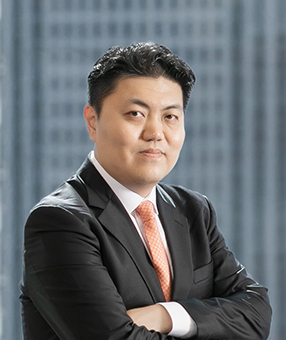The European Union’s Foreign Subsidies Regulation (the “FSR,” Regulation (EU) 2022/2560 of the European Parliament and of the Council of December 14, 2022 on foreign subsidies distorting the internal market) entered into force on January 12, 2023, and became applicable to EU Member States since July 12, 2023. In addition, the European Commission (the “EC”) adopted the Rules for Implementing the FSR (Commission Implementing Regulation 2023/1441) on July 10, 2023. As a result, starting from October 12, 2023, notification-based tools to investigate concentrations and bids in public procurement procedures involving financial contributions by non-EU governments will be introduced, and therefore, Korean companies are advised to make preparations in advance.
|
1. |
General Overview of the FSR |
The EC submitted a proposal for the FSR in May 2021. The purpose of the FSR is to investigate financial contributions granted by non-EU governments to companies operating in the EU and respond to the market distortion caused by such financial contributions. Therefore, the FSR gives the EC the power to conduct (i) ex officio investigations and (ii) notification-based investigations on concentrations and bids in public procurement procedures, and the power to approve the completion of a concentration or to award a contract to an investigated bidder with or without redressive measures.
The EC considers that a foreign subsidy “exists” if (i) there is a financial contribution made by a non-EU government (directly or indirectly); (ii) the financial contribution confers a “benefit” to the companies operating in the EU market; and (iii) such benefit is conferred to “specific” companies or industries in law or in fact (de jure or de facto).
If the EC establishes that a foreign subsidy exists and is distortive, it will balance the negative effects of the subsidy, in terms of the distortion, with its positive effects to determine appropriate redressive measures or to accept commitments. In particular, the EC determines that the following categories of foreign subsidies are most likely to distort the EU market (pursuant to Article 5 of the FSR): (i) a foreign subsidy granted to an ailing undertaking, namely, a subsidy granted to an undertaking that is expected to go out of business in the short or medium-term in the absence of a subsidy even though there was no appropriate restructuring plan; (ii) a foreign subsidy in the form of an unlimited guarantee for the debts or liabilities of a company; (iii) an export financing measure that is not in line with the OECD Arrangement on Officially Supported Export Credits (the “OECD Arrangement”); (iv) a foreign subsidy directly facilitating a concentration; or (v) a foreign subsidy enabling an undertaking to submit an unduly advantageous tender on the basis of which the undertaking could be awarded the relevant contract. In other cases, if the EC finds that the distortive effects of the foreign subsidies exceed the positive effects, the EC may impose redressive measures or accept commitments proposed by the company subject to investigation.
The FSR provides regulations on (i) prior notification of concentrations involving foreign subsidies; (ii) prior notification of bids in public procurement involving foreign subsidies; and (iii) the EC’s ex officio investigation. All three procedures mentioned above consist of a preliminary review and in-depth investigation.
First, in the preliminary review, the EC will determine the existence of a financial contribution by a non-EU government and whether it results in distortive effects within the EU market. If there are no sufficient indications to prove that a company has been granted a foreign subsidy that distorts the internal market, the preliminary review is terminated. However, if the EC finds sufficient indications, it will initiate an in-depth investigation. In this case, the EC must inform the company under investigation and publish a notice in the Official Journal of the European Union inviting stakeholders to submit their views in writing.
During the in-depth investigation, the EC further assesses whether the foreign subsidies under investigation distort the EU market. Where the EC finds that a foreign subsidy distorts the internal market, it may adopt an implementing act in the form of a decision imposing redressive measures. Also, the EC may accept commitments proposed by the company under investigation if it finds them appropriate and sufficient to fully and effectively remedy the distortion. If the EC decides that there is no need to initiate an in-depth investigation or that a distortion in the EU market is outweighed by the positive effects, it will adopt a “no objection” decision and terminate the investigation.
|
2. |
Prior Notification and Investigation of Concentrations |
The FSR provides regulations for the prior notification and investigation of a concentration, separate from the notification of a concentration under the EU Merger Regulation. The term “concentration” in this context includes (i) the merger of two or more previously independent companies or parts of companies; (ii) the acquisition of direct or indirect control of the whole or parts of one or more companies; and (iii) the creation of a joint venture on a lasting basis. Under the FSR, a “notifiable concentration” arises in cases where (i) at least one of the merging companies, the acquired company or the joint venture is “established in the Union” and generates an aggregate turnover in the EU of at least EUR 500 million; and (ii) the following undertakings were granted combined aggregate financial contributions of more than EUR 50 million from third countries in the three years preceding the conclusion of the agreement, the announcement of the public bid, or the acquisition of a controlling interest:
-
In the case of an acquisition, the acquirer or acquirers and the acquired undertaking.
-
In the case of a merger, the merging undertakings.
-
In the case of a joint venture, the undertakings creating a joint venture and the joint venture.
Regarding the meaning of “established in the Union,” the EC explains that this expression should be understood in accordance with the case law of the Court of Justice of the EU and that it includes the incorporation of a subsidiary in the EU, as well as a permanent business establishment in the Union. This means that, for instance, in the case of an acquisition of control over an entity established in a third country, the condition of Article 20 (3) (a) of Regulation (EU) 2022/2560 would be met if that entity has, for example, a subsidiary or a permanent establishment in an EU Member State and the aggregate turnover of the acquired undertaking in the EU is at least EUR 500 million.
If a company fails to submit a prior notification to the EC even though a concentration should be notified, the EC may initiate an ex officio investigation. In addition, the EC may request the prior notification of any concentration that is not a notifiable concentration under the criteria mentioned above, at any time prior to its implementation where the EC suspects that foreign subsidies may have been granted to the undertakings concerned in the three years prior to the concentration.
On the other hand, the forms and contents of the prior notification depend on the likelihood of market distortion. If a foreign subsidy is deemed “most likely to cause market distortion” under Article 5 of the FSR, the parties of the concentration in question must submit details and supporting documents relating to all individual financial contributions exceeding EUR 1 million received in the three years prior to the conclusion of the contract. In case of other financial contributions, the parties must submit an overview (i.e., purpose of the subsidies, etc.) of foreign financial contributions equal to or in excess of EUR 1 million granted to the notifying party(ies) in the three years prior to the conclusion of the agreement if the aggregate amount of the financial contributions by a third country exceeds EUR 45 million.
If the EC receives a complete notification, a concentration cannot be implemented for 25 business days after the date of receipt of the notification. If the EC decides to initiate an in-depth investigation, the concentration cannot be implemented for 90 days after the initiation. However, if the company under investigation proposes commitments to remedy the distortion, the investigation period is extended by 15 days. If the EC finds that (i) there are sufficient indications that show that a financial contribution constitutes a foreign subsidy and distorts the internal market and (ii) there is a risk of serious and irreparable damage to competition on the internal market, it may order interim measures.
In addition, if the EC decides that a concentration that runs counter to the prior notification obligation distorts the EU market, it may prohibit the implementation of the transaction. In addition, the EC may impose fines not exceeding 10% of the aggregate turnover of the relevant undertaking in the preceding financial year in cases where the parties, intentionally or negligently (i) fail to notify a notifiable concentration; (ii) implement the concentration prior to the completion of the EC’s assessment; or (iii) implement a notified concentration prohibited by the EC.
|
3. |
Prior Notification and Investigation of Bidding for Public Procurement |
The FSR defines foreign subsidies that may distort the EU market as “foreign subsidies that enable an economic operator to submit a tender that is unduly advantageous in relation to the works, supplies or services concerned.” In addition, only the foreign subsidies granted during the three years prior to the notification are subject to the assessment.
Under the FSR, a foreign financial contribution in a public procurement procedure shall be deemed “notifiable” when (i) the estimated value of that public procurement or framework agreement net of VAT is equal to or greater than EUR 250 million; and (ii) the economic operator, including its subsidiary companies without commercial autonomy, its holding companies, and, where applicable, its main subcontractors and suppliers involved in the same tender in the public procurement procedure was granted aggregate financial contributions in the three years prior to notification or, if applicable, the updated notification, equal to or greater than EUR 4 million per third country. In addition, if the EC suspects that an economic operator may have benefitted from foreign subsidies in the three years prior to the submission of the tender or request to participate in the public procurement procedure, it may, before the award of the contract, request the notification of the foreign financial contributions provided by third countries to said economic operator in any public procurement procedure which are not notifiable under the above mentioned threshold.
On the other hand, the forms and contents of the prior notification depend on the likelihood of market distortion. If a foreign subsidy is deemed most likely to cause market distortion under Article 5 of the FSR, the bidding company must submit the details and supporting documents of all individual financial contributions exceeding EUR 1 million received in the three years prior to the conclusion of the contract. In case of other financial contributions, the bidding company must submit an overview (i.e., purpose of the subsidies, etc.) of the foreign financial contributions equal to or in excess of EUR 1 million granted to the notifying party(ies) in the three years prior to the conclusion of the agreement if the aggregate amount of financial contributions by third countries exceeds EUR 45 million.
After receiving a notification, the EC carries out a preliminary review of 20 working days, extendable by ten working days, and may decide to conduct an in-depth review that should not last more than 110 working days starting from the date of the receipt of the complete notification, extendable by 20 working days in exceptional cases. During the preliminary review and the in-depth investigation, all procedural steps in the public procurement procedure may continue, except for the award of the contract.
If the EC finds, that a foreign subsidy distorts the internal market, it may accept commitments proposed by the company under investigation if it finds them appropriate and sufficient to fully and effectively remedy the distortion. On the other hand, if the company does not offer commitments or if the EC considers that the proposed commitments are neither appropriate nor sufficient to fully and effectively remedy the distortion, the EC will adopt a decision prohibiting the award of the contract to the company concerned. If the EC decides that there is no need to initiate an in-depth investigation, or that a distortion in the EU market is outweighed by the positive effects, it will adopt a decision of “no objection” and terminate the investigation.
The EC may impose upon the economic operators concerned fines that do not exceed 10% of their aggregate turnover in the preceding financial year in cases where the economic operators, intentionally or negligently (i) fail to notify foreign financial contributions in accordance with Article 29 during the public procurement procedure; or (ii) circumvent or attempt to circumvent the notification requirements.
|
4. |
EC’s Ex Officio Investigation and Sanctions |
The EC may, on its own initiative, examine information from any source, including Member States, a natural or legal person or an association, regarding alleged foreign subsidies distorting the internal market. The FSR provides for a limitation period of ten years, starting on the day on which a foreign subsidy is granted to the company in question. The EC carries out a preliminary review as well as an in-depth investigation to assess the alleged market distortion caused by the foreign subsidies concerned. If the EC finds that the foreign subsidies concerned distort the EU market, it may order redressive measures, or decide whether to accept commitments proposed by the company under investigation.
At the same time, a financial contribution notified in the context of a concentration or of a public procurement may be relevant and assessed under this Regulation in relation to another economic activity. In other words, even if the EC finds that a financial contribution made by a non-EU government that was notified for the prior notification of a concentration does not distort the EU market, the same financial contribution may be subject to ex officio investigation or public procurement investigation procedures.
In addition to the sanctions imposed for breaches of prior notification obligations, the EC may impose fines on economic operators that do not exceed 1% of their aggregate turnover in the preceding financial year in cases where those economic operators intentionally or negligently supplied incorrect or misleading information in a notification or declaration.
The FSR should be closely reviewed and prepared for by companies that are planning on conducting a merger or participating in a public procurement tender in the EU and meet the turnover requirements.
In particular, Korean companies planning to acquire companies in the EU or establish joint ventures in the EU should collect and analyze information regarding financial contributions by foreign governments, including Korea, for the last three years to prepare for prior notification procedures under the FSR. In addition, Korean companies planning to participate in public procurement projects with a contract value of more than EUR 250 million in the EU should also review whether they meet the foreign subsidy notification requirements. In this regard, they are also advised to consider utilizing the pre-notification consultation process with the EC and/or requesting an exemption from the information submission obligation.
It is also worth noting that the EC plans to issue guidelines on key concepts such as market distortion, balancing test, and the test for triggering the notification obligation within three years of the entry into force of the FSR.
Related Topics
#EU #Foreign Subsidies #International Trade & Customs #2023 Issue 3 #Newsletter









